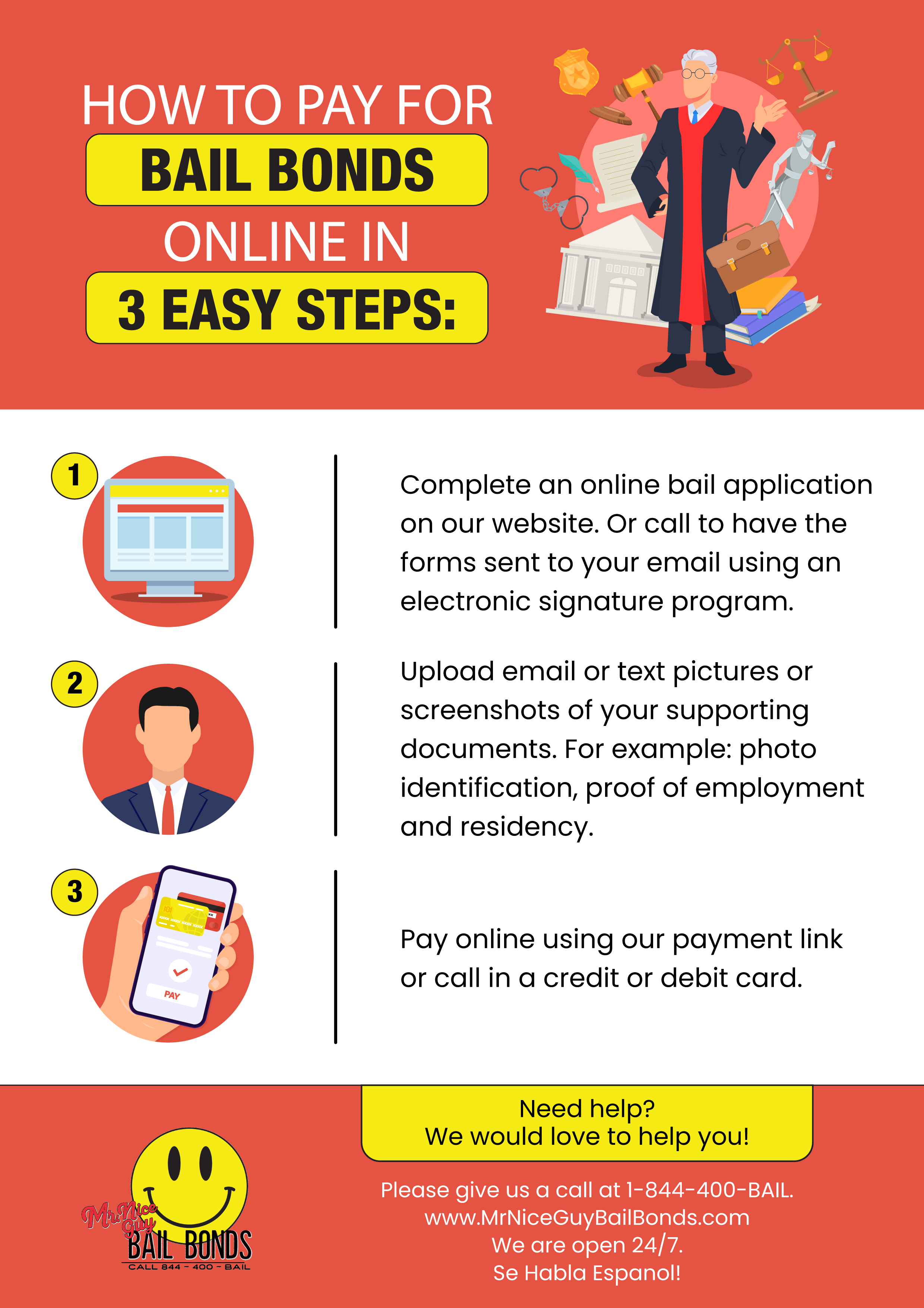Fast Action with Bail Bonds Anywhere.
Fast Action with Bail Bonds Anywhere.
Blog Article
Your Complete Overview to Recognizing Bond Bond Terms and Conditions
Browsing the complexities of bail bond terms and problems is an important component of effectively taking care of legal obstacles. Different types of bond bonds and their connected costs can dramatically affect the decision-making process.
What Is a Bond Bond?
A bail bond is a contractual arrangement between a defendant, a bondsman, and the court, ensuring that the offender will certainly stand for set up court proceedings for their release from wardship. bail bonds service. This legal tool serves to shield the rate of interests of the court by giving a monetary motivation for the accused to conform with judicial demands
(bail bonds dayton ohio)Usually, when an accused is jailed, they may be offered the alternative to publish bond, which is a financial quantity established by the court. If the defendant can not afford the bail, they can seek the support of a bond bondsman. The bail bondsman bills a non-refundable cost-- generally a percentage of the total bail amount-- in exchange for posting the bail in behalf of the defendant.
Upon the defendant's release, the bail bond remains basically until the conclusion of the litigation. Failure to appear in court may result in forfeiture of the bond amount, and the bondsman may pursue the defendant to recover the prices sustained. bail bonds service. Subsequently, recognizing the characteristics of bond bonds is critical for offenders and their family members as they browse the judicial process.
Trick Terms Clarified
Recognizing bail bonds involves familiarizing oneself with numerous crucial terms that are essential to the process. One essential term is "bond," which describes the amount of cash needed to safeguard the launch of a defendant from custodianship while awaiting test. "Bond bondsman," or "bail bondsman," is one more critical term, representing an expert who provides the necessary funds for bail in exchange for a cost, normally a percent of the total bail quantity.
" Collateral" is also significant; it stands for properties promised by the accused or co-signer to ensure the bond's settlement. If the defendant falls short to appear in court, the security may be waived. The term "indemnitor" refers to the person who concurs to be in charge of the bond, usually a relative or pal of the charged.

Kinds Of Bond Bonds
Different sorts of bond bonds serve various functions and satisfy certain situations in the lawful system. The most usual type is the guaranty bond, where a bail bondsman assures the defendant's look in court in exchange for a cost, usually 10% of the bail quantity. This kind is commonly utilized because it enables people who can not manage the full bond to secure their launch.
Another type is the cash money bond, which calls for the internet complete bail quantity to be paid in cash money to the court. This option is commonly favored for lower bond quantities, as it guarantees the offender's release without including a bail bondsman (bail bonds service). If the defendant shows up in court as called for, the cash is reimbursed at the verdict of the case
Furthermore, there are residential or commercial property bonds, where actual estate is used as collateral for the bond quantity. This can be a viable choice for people that own home yet do not have liquid funds.
Finally, government bonds put on federal situations and are commonly more difficult to acquire, usually requiring the support of a specialized bondsman. Comprehending these variants is critical for browsing the bond system effectively.
Common False Impressions
Misconceptions about bail bonds typically cause complication for offenders and their family members. One widespread misconception is that paying bond warranties launch from prison. In truth, bail functions as a monetary assurance that the defendant will appear at their scheduled court hearings. If they fall short to do so, the bond quantity might be surrendered.
Another usual misconception is that all bond bonds coincide. There are several kinds of bond bonds, consisting of surety bonds, cash bonds, and residential or commercial property bonds, each with distinct characteristics and needs. Recognizing these differences is essential for making informed choices.
Furthermore, numerous individuals think that bail bond agents are just financing sharks. Actually, licensed bail bond representatives operate within a regulated structure, charging a costs for their services, which is typically a percent of the overall bond amount.
Lastly, some presume that only affluent individuals can manage bail. Bail bond services are made to assist those that may not have instant accessibility to large amounts of cash, enabling a more comprehensive segment of the populace to safeguard their release while waiting for test. Clear understanding of these mistaken beliefs can significantly minimize stress and anxiety during a difficult time.
Understanding Fees and Expenses
While browsing the bail bond process, it is important to understand the costs and prices connected with securing a bond. Bail bonds usually need a non-refundable costs, which is a percent of the overall bail quantity set by the court. This costs typically varies from 10% to 15%, relying on state laws and the bail bond firm's plans.
Along with the costs, there might be various other charges included. These can consist of administrative charges for processing the bond, collateral fees if assets are required to secure the bond, and possible revival costs if the bond requires to be prolonged. It is important to ask the bail bond agent for a thorough failure of all prices to stay clear of unforeseen costs.
(bail bonds mansfield ohio)Understanding these monetary elements in breakthrough can help individuals make educated choices and ensure they are prepared for the total prices associated with the bail bond process. Constantly review the contract thoroughly and seek explanation on any kind of unclear terms before continuing.
Verdict

Report this page